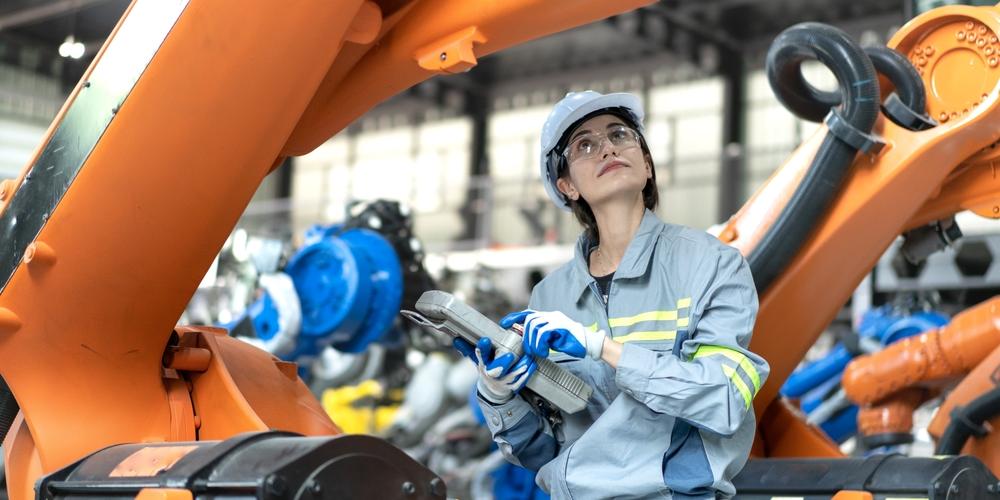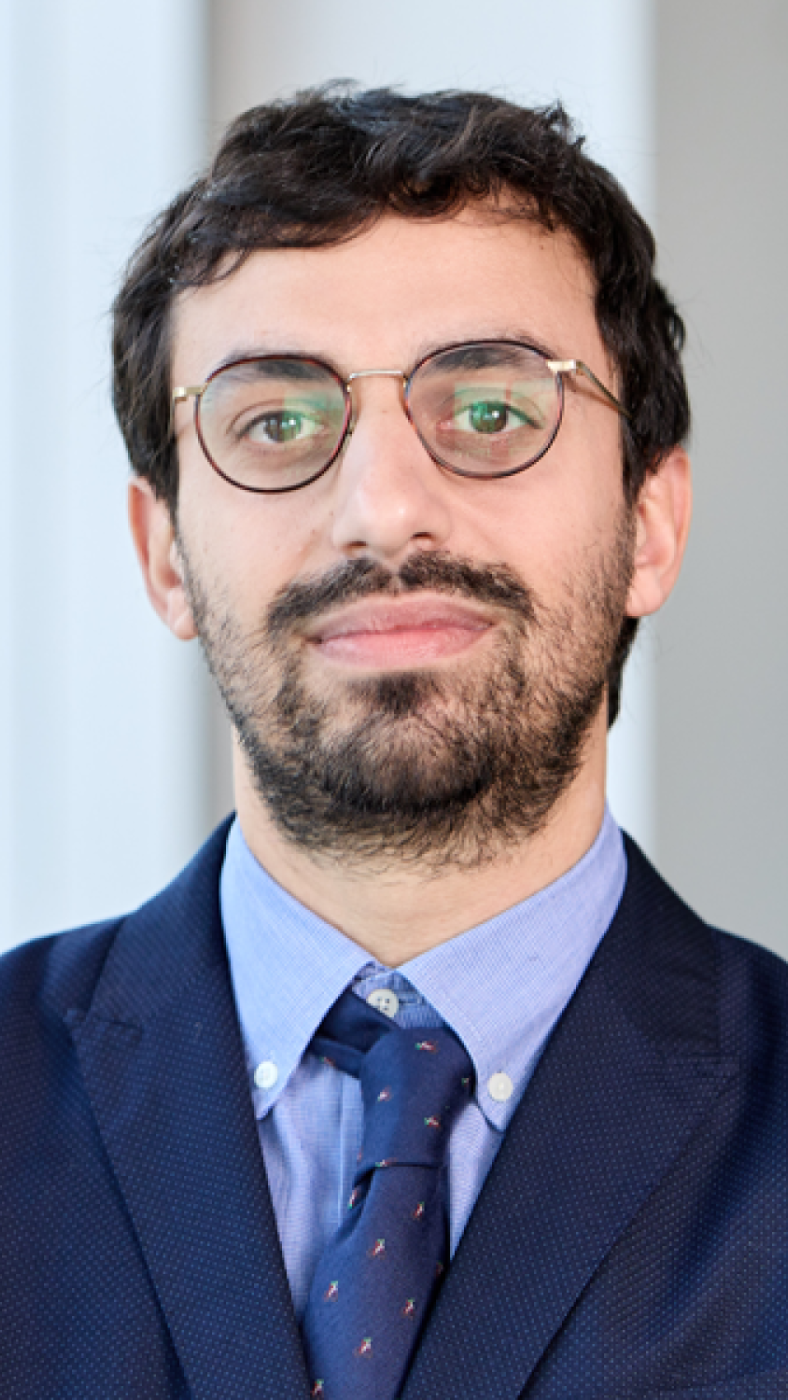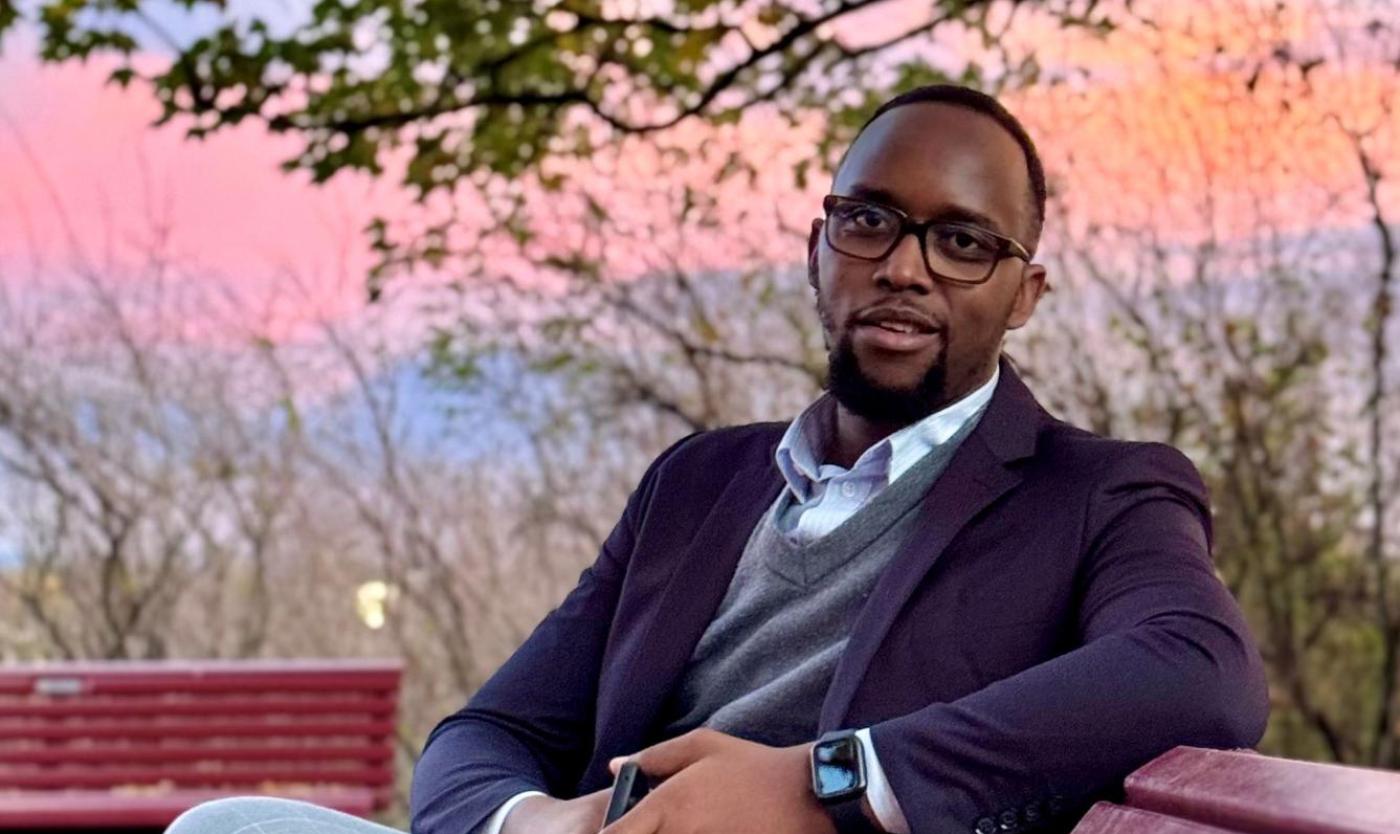
Dr Antonio Calcara to Deliver Inaugural ERC Lecture on Navigating the US-China Tech Rivalry
On 12 May, Dr Antonio Calcara will deliver his inaugural ERC lecture titled "How Can Europe Navigate the US-China Tech Rivalry to Safeguard Its Strategic Autonomy?" at the VUB campus in Etterbeek. Antonio leads the project Competition in the Digital Era (CODE): Geopolitics and Technology in the 21st Century, which explores the power struggle over technology between China, the United States, and Europe.
“If Europe misses the AI revolution, it could severely impact our productivity. There’s already a considerable gap between Europe and the US in terms of digital services. Another consequence could be that, as we begin to use AI, a significant number of people may lose their jobs in the short term,” he warns.
What will your lecture cover?
“Primarily, it’s about the intersection of technology and politics. Technology has become a battleground for political and geopolitical rivals. I’ll provide a sort of historical overview — this isn’t the first time technology has played a central role in conflict. The UK once protected its coal industry out of fear of competition, and similar dynamics were at play during the Second Industrial Revolution with electricity. Today, we see the same patterns with AI, where the US and China are racing to shield and advance their technologies. I’ll discuss Europe’s prospects in this competition — are we falling behind? Should we place our trust in the US and its expertise? Is there hope? These are less academic and more politically charged questions that I’ll explore.”
Are democratic values at risk due to technological advances?
“These technologies can be misused, such as AI and facial recognition for anti-democratic purposes. That risk doesn’t come from the technology itself but from political leaders intent on using every tool at their disposal to increase control. In liberal democracies, however, AI is more likely to be deployed in service of citizens.”
“Demand for AI and Cloud Computing in Europe Is Alarmingly Low”
How far behind is Europe?
“There’s no denying we lag behind the US and China, though we do have strengths in some niche areas — we possess strong expertise in semiconductors, for instance. But we missed the computing revolution of the 1980s and focused instead on less tech-intensive industries. The demand for AI and cloud computing in Europe is woefully low. Few European firms use these advanced tools or apply AI to big data analysis. That lack of demand partly explains why Europe produces fewer technological solutions and sees less private investment in the field. If we can stimulate demand, investment will follow. Relying solely on public funding won’t be enough to catch up.”

Was there stronger demand in the US and China?
“Yes — both countries have long seen high demand for Big Tech. There, production and consumption are deeply intertwined. The more you use AI, the more you refine the algorithms and improve inputs, creating a feedback loop between demand and supply. Europe lacks this dynamic.”
What are the economic consequences of Europe’s lag?
“There will be several. Missing the AI revolution could hamper our productivity, and we’re already trailing the US in digital service delivery. Another likely outcome is significant short-term job losses as AI becomes more widespread. That presents a major challenge for European policymakers in the years ahead.”
Can Europe learn from China and America’s innovation strategies?
“The dynamics in each region are completely different. The EU isn’t a single state, so we can’t deploy the same kind of resources. But what we can learn is the importance of a more active role for governments. Both China and the US have adopted top-down approaches. People often see the US as a haven for entrepreneurs, but if you look closely, state institutions — particularly the Department of Defence — have always played a major guiding role. Public investment is key. But Europe’s single market was built precisely to avoid state-level industrial favouritism and subsidies, which complicates things.”
“Trump Has Made Academic Life Less Attractive in the US — a Chance for Europe”
Are there any shortcuts for Europe to catch up?
“Investing in education and research is essential. Right now, we lack the skilled workforce these sectors need. If you’ve got a degree in AI or machine learning, chances are the private sector will snap you up — the pay and working conditions are better than in academia. Researchers here in Belgium and across Europe often find more opportunities in the US when it comes to Big Tech. We have incredible talent and a strong education system, but we struggle to retain postdoctoral researchers. That said, I’m still optimistic — we’re not starting from scratch. European universities rank among the world’s best. And with Trump making the academic environment in the US less appealing, we’ve got a real chance to attract top researchers. That’s a chance we shouldn’t miss, because we have a lot to learn from them — and they could help shape our future.”
You’ve researched drone production in Europe?
“Countries like Turkey, Iran, and Israel dominate that market. Europe is virtually absent, focusing instead on heavy weaponry such as tanks and ammunition. As drones become more advanced thanks to AI, production costs will rise — and so will the sophistication of defence systems. But Europe isn’t prioritising this because, in the short term, we urgently need to replenish our artillery stockpiles. Even if we all invested 5% of GDP, we wouldn’t catch up technologically within the next decade. And Europe has many other pressing issues to address.”
Those other issues are, of course, tied to the democratic health of its member states.
“It’s actually a positive step that Europe is debating defence more openly now — that wasn’t always the case. When I was doing my PhD, people questioned why I focused on defence at all. But security is a prerequisite for democracy, so how we allocate spending should remain a democratic decision. At the same time, the more we spend on defence, the less we have for other priorities. The real question is how we remain secure without compromising our welfare state and European way of life. That’s a political and public debate we urgently need to have. I don’t have the answer — thankfully, I’m not a politician. It’s a heavy responsibility.”
“I Don’t Know How We Can Achieve Peace Without Yielding to Russia”
What’s happened to pacifism?
“These are not good times for pacifism, especially with Trump and others taking things in a very different direction. Europe still has a role to play, even if we’re not as powerful as the US or China. But how to achieve peace without capitulating to Russia is unclear. If we can’t deter countries like that, peace will remain elusive. That’s why deterrence is the main aim of our rearmament. But it’s a dangerous game — the more you arm, the more others will too. It’s the security dilemma: the more secure you try to be, the less secure everyone becomes. The key is finding a way to distinguish ourselves from military superpowers like Russia, the US, and China. And on that front, I still have hope.”
Would you describe yourself as a sociologist or political scientist?
“A political scientist, but with a fascination for technology. As part of my project, I speak daily with engineers. Technology isn’t just about gadgets — it brings sociological dynamics as well. That’s what fascinates me. How technology is used often stems from geopolitical agreements. My iPhone, for example, will have completely different components in five to ten years due to geopolitics. It’s made in China now, but soon it might be produced in India or Vietnam — and that will change the phone because those countries don’t have China’s level of expertise. So any piece of tech is really a blend of technical and political decisions. That’s the field I study. I also believe academics should push beyond their comfort zones and do more interdisciplinary work. At VUB, we’re already seeing the walls between the geopolitics and AI departments start to come down. This is just the beginning — the future belongs to departments where engineers, political scientists, sociologists, and anthropologists collaborate.”
‘How can Europe navigate the US-China Tech Rivalry to Safeguard its Strategic Autonomy?’
- Monday 12 May 2025, from 5:00 PM to 7:00 PM
- U-Residence
- VUB Main Campus, Etterbeek
Pleinlaan 2, 1050 Ixelles (Brussels) - Free admission — registration required by 5 May 2025
Bio Antonio Calcara
Antonio Calcara is Head of the Geopolitics and Technology Programme and a Research Professor at the Centre for Security, Diplomacy and Strategy (CSDS), a research hub of the Brussels School of Governance at VUB. His project CODE (Competition in the Digital Era) is funded by the European Research Council (ERC) and is embedded within the CSDS. The project explores the global technological power struggle between China, the United States, and Europe across three critical sectors: semiconductors, cloud computing, and space technologies. Its aim is to understand how states compete for control over strategic technologies — and what that means for both geopolitics and the global economy.
Curious about the forces shaping world politics?
Discover VUB's study programmes:
Microcredentials and postgraduates: Democracy: challenges and futures EU Policy Making
Bachelors: Politieke wetenschappen Social Sciences
Masters: European Integration European and International Governance
ALL PROGRAMMES IN ENGLISH ALL PROGRAMMES IN DUCTH

